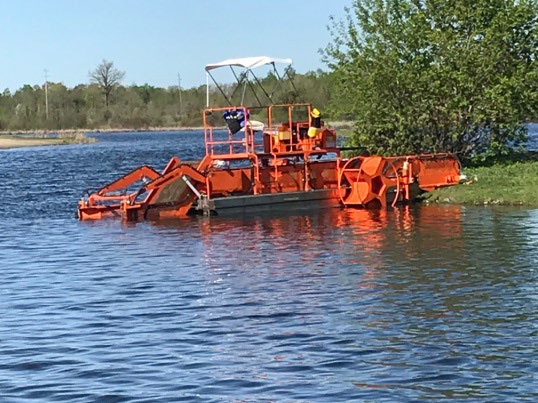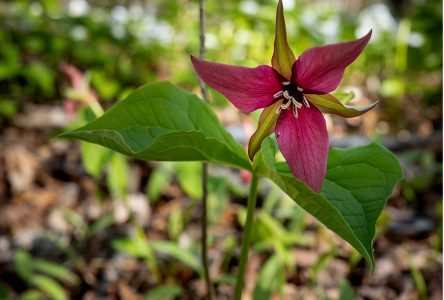The summer weather is finally here, bringing with it the return of flip flops, shorts and Canada waterweed (Elodea canadensis).
The Township of North Glengarry recognizes that while the water lilies in Mill Pond are pretty when they’re blooming, the algae and Canada waterweed create less than ideal swimming conditions. Similar to previous years the Township is committed to a collaborative strategy with Raisin River Conservation Authority and the Department of Fisheries and Oceans to reduce this invasive perennial over a limited area equal to 9.1% of Mill Pond.
The removal of the weeds from Mill Pond is scheduled to start after June 15th and it improves the fish habitat by promoting an increase of dissolved oxygen for aquatic life. The harvester cuts weeds, collects them on its deck and they are deposited on the shore where they are relocated for composting.
The Canada waterweed is an invasive and adaptable perennial plant that thrives in both moving and still water. It usually grows horizontally, forming a dense carpet of weeds. Although it sometimes reaches the water surface, this nuisance plant usually maintains stems and leaves that are completely submerged. The plant anchors itself to the bottom by means of roots that develop along the stem and the stolon of the plant, reaching an average length of around one metre. Controlling these weeds involves mechanically removing them from the water and composting the plants on land.
The Township protects the spawning fish nests by identifying them prior to the removal of the weeds. Our bright orange weed harvester looks a bit like a paddle boat crossed with a sand screener. It is capable of navigating through shallow water at a slow crawl and removing weeds with extreme care. The harvester is operated by a single driver who circles the pond in rotating patterns.



